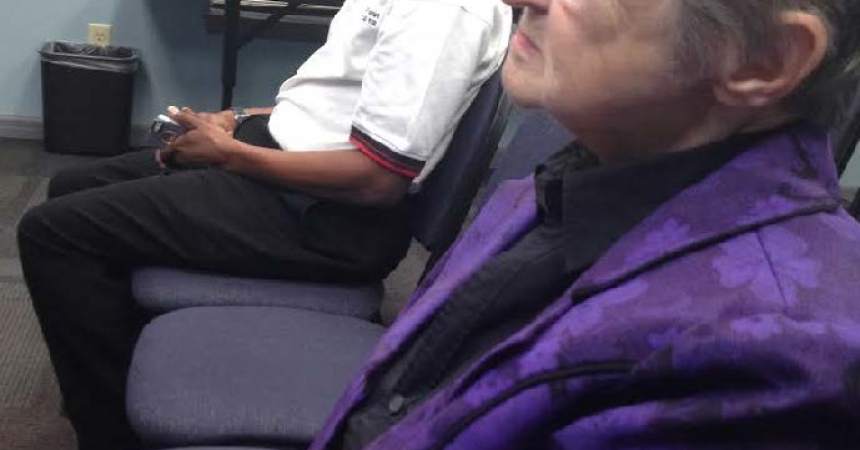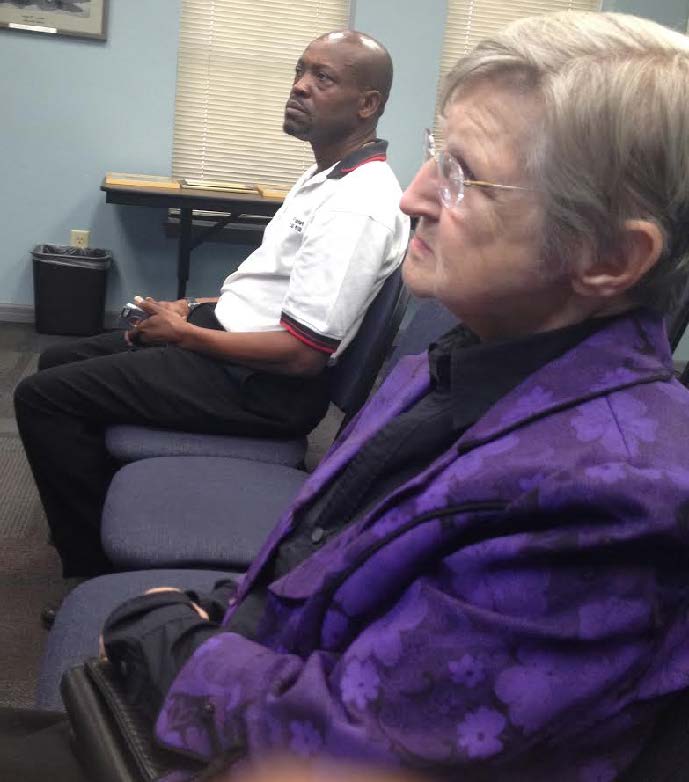
Community activist sheds light on stigma faced by ex-felons
By St. Clair Murraine
Outlook staff writer
An incident that led to a Sheriff Deputy serving him a trespassing warning was more about him being an ex-felon than his insistence for a meeting with the CEO of Big Brother Big Sister organization, said community activist Rev. Stanley Sims.
A week after the highly publicized incident, Sims held a press conference calling for fair treatment of felons who have served their time. In his case, Sims, who heads up Helping Empower Low Income People Against Drug organization, said he’s been turned down several times in his effort to partner with other non-profits.
His criminal record was always the reason given for not being able to do community work with other organizations, he said.
“The discrimination against ex-felons is not limited to housing and jobs,” Sims said. “It’s about how we treat each other. I’m not just an ex-offender.”
One of the biggest causes of ex-felons returning to the prison system is being unable to find employment, Sims said. He praised an initiative by Mayor Andrew Gillum and FAMU president Elmira Mangum to ban the box that ex-felons must check on a job application.
Don Tolliver, vice president of the Tallahassee chapter of Al Sharpton’s National Action Network, said he too hasn’t been able to find a job because of a run-in with the law.
“The first thing they look at was the box on my application,” Tolliver, who was charged with passing worthless checks, said. “We need to look at the entire person; the whole person and not look at just the issue on what they could have or may have done.
“By looking at the total person, then we will be able to accomplish this mission in putting people back to work.”
In addition to Tolliver, Agnes Flurey also showed up to support Sims. Flurey, who has worked community project with the minister, praised his activism and expressed concern about him and other ex-felons being denied opportunities.
“Ninety percent of the people we lock up come home,” she said. “They are living amongst us every day. They don’t wear signs; we don’t know that. We do know that they all are returning citizens and are expected to be given the same respect as anybody else walking down the street.”
Sims said he felt compelled to bring ex-felons’ dilemma to the light because he thought too much was made of his record in coverage of the Big Brother Big Sister incident. Department of Corrections records show that he served time for indecent assault on a child under 16 and grand theft auto.
He served four years for the latter charge in 2011.
Sims questioned why he was given a warning at his home by the Sheriff after he agreed to leave the Big Brother Big Sister administrative offices, following the incident between him and the organization’s CEO, Alva Striplin.
Sims said he went to Striplin’s office in hopes of having a meeting to discussing how his organization might get involved in a summer program for youths. He decided to go to the office after several unsuccessful attempts over several weeks to reach Striplin by phone, Sims said.
Striplin, a member of the Leon County School Board, contended in a Tallahassee Democrat report of the incident that Sims wanted to discuss a matter concerning the school board.
Striplin also said she was concerned about Sims’ criminal past.
“The way the story was written was as if it was justifiable because I’m an ex-felon,” Sims said. “It was like it was okay to treat me as if I’m not a human being.”
Sims’ organization has been recognized for the impact it has had on crime and social issues in Tallahassee and Gadsden County. He displayed a proclamation from Mayor Andrew Gillum, and reiterated statements of praise from former Gov. Jeb Bush. He also had a plaque showing national recognition of his organization.
The recognition from the mayor came as a result of his effort in helping to champion the city’s Operation Safe Streets initiative, Sims said.
Flurey was at his side during “hot spots” checks on Saturday nights. She was there again last week when Sims met the press.
“Stanley was exceptionally good at brining those folks together and getting everybody to relax and be able to communicate, which was the intent of the program in the first place,” she said, recalling their work in the area known for high crime rate. “We tend to stay in our own neighborhoods and don’t know each other.”








